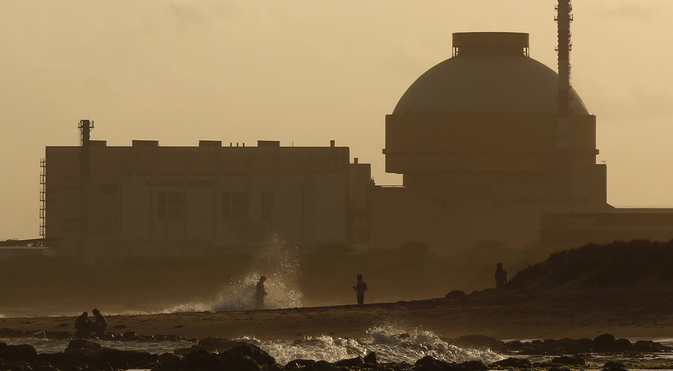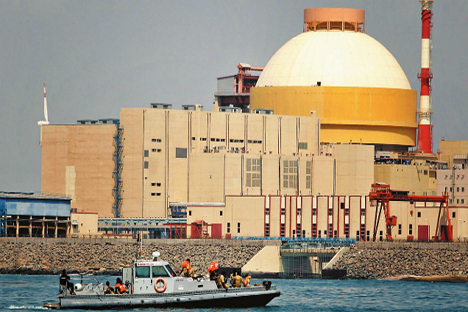Kudankulam 2 to begin working

Russia and India hope to finalise a deal for Kudankulam 3 and 4. Source: Reuters
Preparations are on to operationalise the second Unit of the Kudankulam Nuclear Power Plant in Tamil Nadu, a report in the Economic Times newspaper said. The stage is also set for the construction of two more reactors, each with a 1000 mw capacity the newspaper quoted the Russian company Rosatom, which is building the atomic power plant, as stating.
"The construction of the second power unit (Unit-2) has been completed at the NPP (Nuclear Power Plant) site and preparations for putting it into operation are underway," Rosatom said in response by email to queries from the news agency Press Trust of India (PTI), on the status of the Kudankulam Unit-2.
The Russian company said primary and secondary circuits of the second power unit (Unit-1) have successfully passed hydraulic tests, including circulation flushing, using parameters with the powering of the main circulation pumps.
"The second unit is scheduled to be connected to the grid in the fall of 2015," the company said, without specifying a date. Commissioning of the second unit has been postponed four times so far.
Regarding Units 3 and 4, Rosatom said, "construction works are scheduled to start this year". Each of these units will be of 1000 mw capacity. "The agreement of priority engineering works was already signed and is being successfully implemented for power Units 3 and 4," Rosatom informed PTI.
The Units 2, 3 and 4 are part of "strategic vision" between India and Russia under which 12 nuclear power plants, each of 1000MW, would be built in batches of two and made operational over the next 20 years in Kudankulam in the southern Indian state of Tamil Nadu.
Construction had slowed down after the devastating earthquake and tsunami at Fukushima in Japan in March 2011 had caused a nuclear power plant there to ‘melt down’ and raised major concerns about the safety of atomic power plants across the world.
About the Unit-1, which is already operational, Rosatom said it is the "most powerful" reactor in India and "meets the state-of-the-art safety requirements".
Asked about the status of another nuclear plant proposed to be set up by Russia, for which Haripur in the eastern West Bengal state was identified by India, the Russian company said the local political situation should be taken into consideration.
"Haripur is one of the sites proposed for construction of nuclear power units with Russian reactors. The Russian party has confirmed its willingness to build a nuclear plant in Haripur. However, local political situation should be kept in mind," Rosatom said. Any construction work has been delayed because of objections and protests by the local population.
Asked to comment on an agreement between India and Canada for supply of uranium signed earlier this year, the Russian company said it will help India diversify its sources of uranium and achieve its scheduled objectives. Citing data from India’s Atomic Energy Commission, Rosatom said India is facing nuclear fuel deficiency and will need to import more than 5,000 tonnes of uranium by 2017.
India now produces about 400 tonnes of uranium each year. According to the plan projections, the country intends to double its production of uranium in the medium term to meet its increasing nuclear fuel requirements.
All rights reserved by Rossiyskaya Gazeta.
Subscribe
to our newsletter!
Get the week's best stories straight to your inbox
